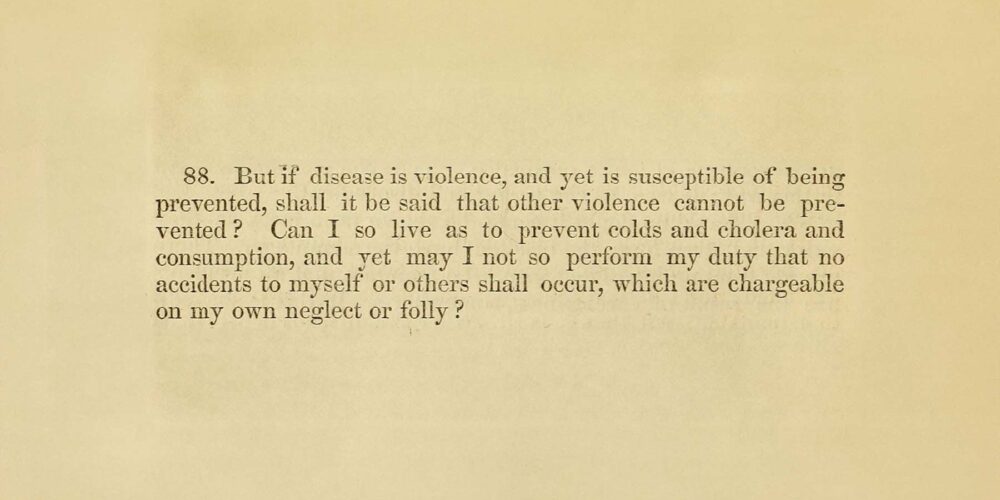
Violence as Contagious: Historicising Anglophone Narratives of Violence, Health, and Disease, 1800s to the Present
- Fellow
- Sophie Franklin
- Countries
- Ireland, United Kingdom
- Institutions
- University College Dublin
University of Reading - Contact
- sophie.franklin@ucd.ie
- Website(s)
- sophierfranklin.com
Dr Sophie Franklin University College Dublin & University of Reading
Physical violence is now often approached globally as a public health crisis. In 2002, the World Health Organisation declared violence a major ‘health burden’ and, since then, it has routinely been positioned as a global health emergency. Yet when did the connections between violence and contagious disease first become embedded in the English-language imagination as an influential narrative? And how might the development of a clear history of such a phenomenon aid ongoing treatments of violence today?
Through close analysis of work by writers including Mary Shelley and Anne Brontë, Dr Franklin’s research locates this moment in the nineteenth century, at a time when an increasing number of interdisciplinary writers were explicitly aligning physical brutality with ill health. The nineteenth century was an age of global contagion: advances in medical science and legal interventions led to the popularisation of an English-language vocabulary of infection that influenced conceptualisations of violence. Understandings of violence changed from being predominantly linked to sin and self-determined morality to something that could be understood through technologies of observation and control, which had also emerged around contagious diseases in the Victorian period. Dr Franklin’s research examines how this shift developed alongside a tendency to compare and overlap conceptions of violence and contagious disease. Through the combination of literary-historical methodologies and an engagement with current public discourses surrounding treating violence as a public health crisis in England and Ireland, Dr Franklin will show how the “violence as contagious” narrative became central to debates around criminal responsibility and the rise of violence as a cultural problem.
This project emphasises the significance of violence in historical narratives of health and, in the process, explores how Victorian imaginings of violence as contagious anticipate and potentially inform ongoing public health approaches to violence today, through identifying both effective and detrimental implications of such interventions. Dr Franklin is mentored by Dr Ailise Bulfin, University College Dublin and Professor Andrew Mangham, University of Reading.
Publications and Links
News
Sophie Franklin recently presented her research at Durham University’s Institute for Medical Humanities (IMH). The event, featuring Professor Alistair Fraser, focused on the affective contagion of violence. Watch the talks here.